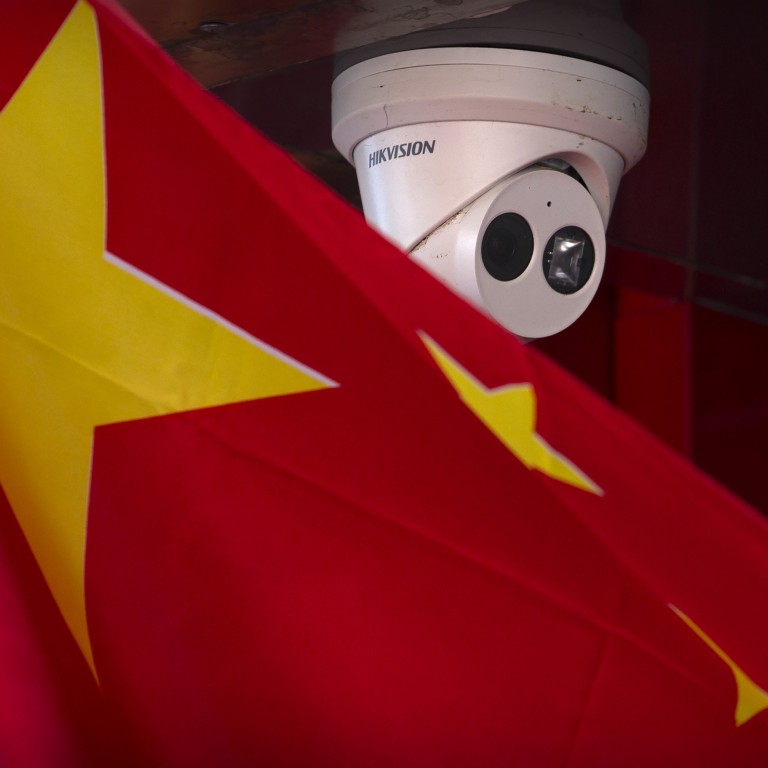
China’s surveillance giant fears losing business after being blacklisted by US
- Hangzhou Hikvision Digital Technology has been added to an entity list that prevents American firms from supplying it with components and software
- But firm says it had anticipated the action and stockpiled enough key parts to keep operations going for some time
But executives at the company said it was large enough to withstand US sanctions and develop its own technology in the longer term. Huang Fanghong, a senior vice-president, said the company’s home market remained a rich source of revenue even though its US business was shrinking.
The company said it anticipated the action and stockpiled enough key parts to keep operations going for some time, and did not foresee a major impact on its business as a result of the ban.
Most of Hikvision’s US suppliers were continuing to do business with it, while abiding by export regulations and without the need for special licences, Huang said.
“We have made a great deal of preparations, from a year ahead of the ban,” he said. “There’s no way for us to fully discuss the impact from the entity list in 10 days. We need more time to talk to our suppliers and customers. A steady component supply is key in this process, no matter if we decide to use original materials or a replacement design.”
Beijing protests against US visa sanction on Chinese officials over Xinjiang
The US decision, which came on the eve of sensitive trade negotiations, takes President Donald Trump’s economic war against China in a new direction: the first time his administration has cited human rights as a reason for action.
It also deals a potentially heavy long-term blow to Hikvision, which has steadily switched to Chinese-made components in recent years but still relies on the likes of Intel, ON Semiconductor and Texas Instruments, particularly for higher-end chips.
Still, as much as 80 per cent of Hikvision’s sales are insulated from the US ban, according to a Bloomberg Intelligence note published on October 8.
“Hikvision’s sales may continue to rise over the next year despite the Trump administration’s decision,” it said. “It can also source alternative parts, though with a weaker performance, from local suppliers in the medium term.”
Hikvision was added to the entity list alongside SenseTime Group and Megvii Technology, two giant enterprises Beijing is counting on to spearhead advances into a revolutionary technology. Hikvision does not play as big a role in China’s ambitions but it is a key partner to Beijing, and its cameras are considered pivotal to crime prevention as well as helping to build “smart cities” around the world.
Longer term, US sanctions threaten to crimp some of the explosive growth Hikvision has managed this decade, in large part due to China’s effort to put in place the world’s largest surveillance and monitoring network. The company may find itself short of the components it needs to build advanced systems, unless Chinese chip makers succeed in developing more advanced products – another of Beijing’s stated policy ambitions in technology.

